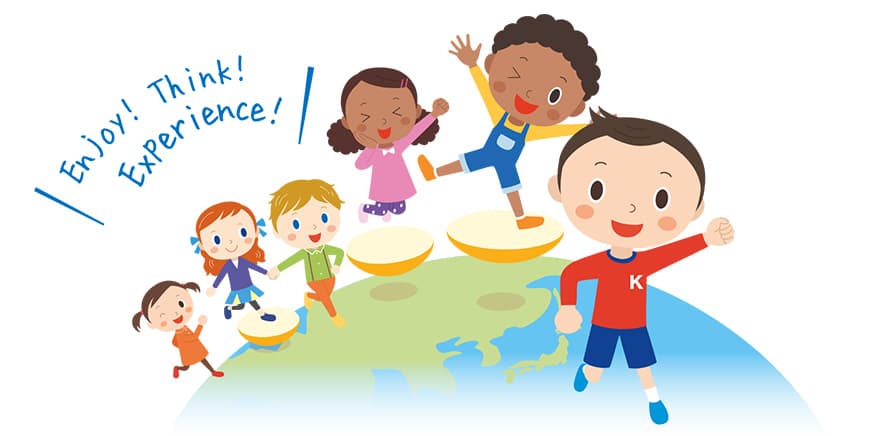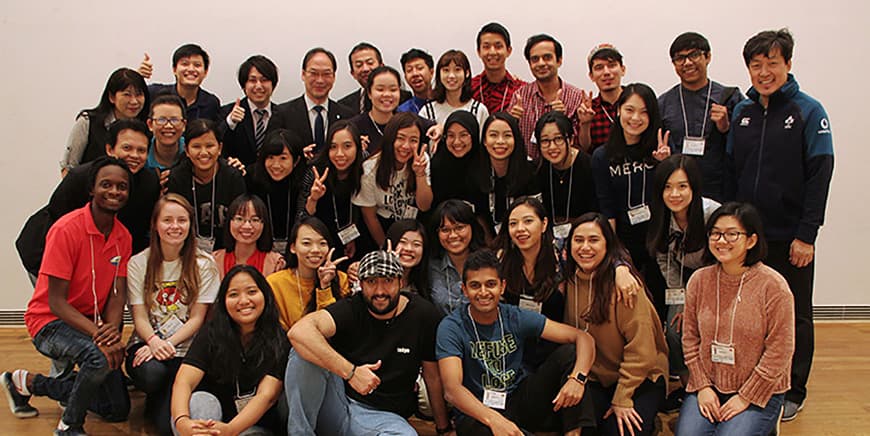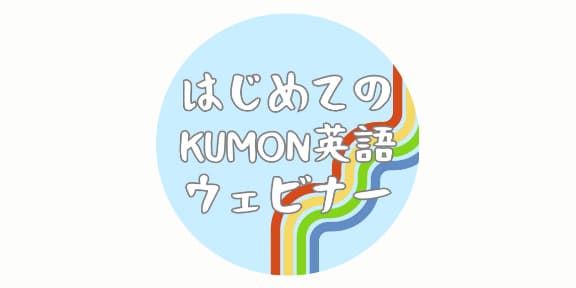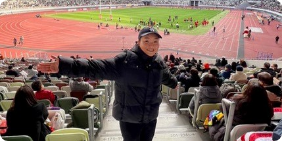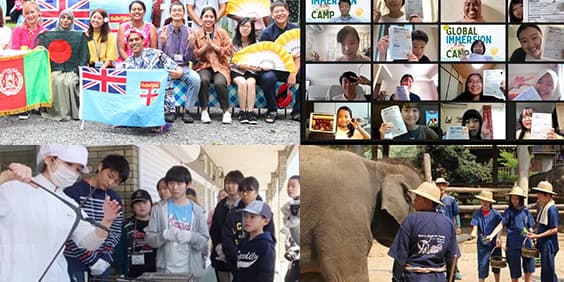レポート
Wonder the World Vol.8: “Belgian Garden” (ベルギーのお庭)
タン(ベトナム出身)
立命館アジア太平洋大学(APU)在学中にEIC活動に参加。卒業後、6年間東京で勤務後、2020年より博士課程取得のためヨーロッパに移住。現在はベルギー在住。都会っ子だったタンさんが、ベルギーでどんな風に自然と調和した暮らしをしているのでしょう?ベルギーの人々の知恵を教えてもらいましょう!
Thanh (Vietnam)
Hi everyone! My name is Thanh. I am from Vietnam. I participated in English Immersion Camp (EIC) while I was a student at Ritsumeikan Asia Pacific University (APU). After graduation, I worked in Tokyo for about six years. In 2020, I moved to Europe to pursue a master’s degree. I am now living in Belgium.

How it all started…
For most of my life, I live in big cities. I must admit that I was a city girl. I am used to noise, tall buildings, and big crowds. I led a busy life with a lot of activities. Once a few months, I went hiking in the mountains with friends. To me, nature was something that is far away from where I live. Nature is the place to go for vacation. It is only when I moved to Belgium with my partner. I started to realize nature is right where I live. We live in a house with a small garden in the back. I did not notice before, but many animals and plants are co-living with us. They are bees, birds, flies, or mice. They are big trees, flowers, or weeds that we are walking on. I also noticed how the people in my town take care of their gardens and surroundings. I gain a new perspective on being more environmentally friendly and learning to co-living with animals and plants.
Today, I want to share with you tips on how Belgian people take care of their gardens. There are unspoken ways of doing so that they harmonize with their surroundings. I have learned a lot, and I hope you can also find these tips useful.
① Leave dry leaves on the ground
During the winter, there are a lot of dried leaves on the ground. You feel like cleaning them up. Wait! Those leaves might be the shelter for the small animals. Many use the leaf layer on the ground as their primary habitat including frogs, earthworms, or insects. Belgian people leave the dry leaves to help small animals survive better during cold winter. Spring will be a better time to clean them up.
Do you know that many butterflies overwinter in the leaf layer? Please imagine one day you no longer see butterflies around because human accidentally takes away their home.
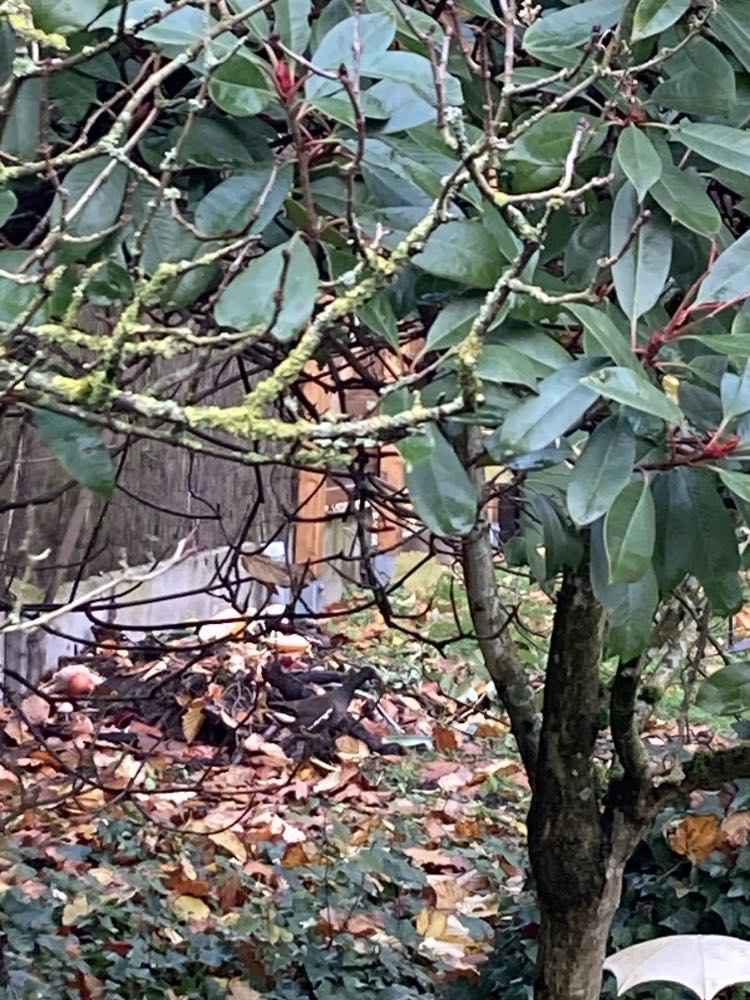
② Plant flowers
Belgian people plant a lot of flowers in their gardens. The flowers are not only beautiful but they are the main sources of food for the bees. Many choose to plant wildflowers, which come back every summer. That is how people here do not have to spend a lot of money on new plants every year and still have beautiful gardens not only for themselves but also for bees and butterflies to enjoy.
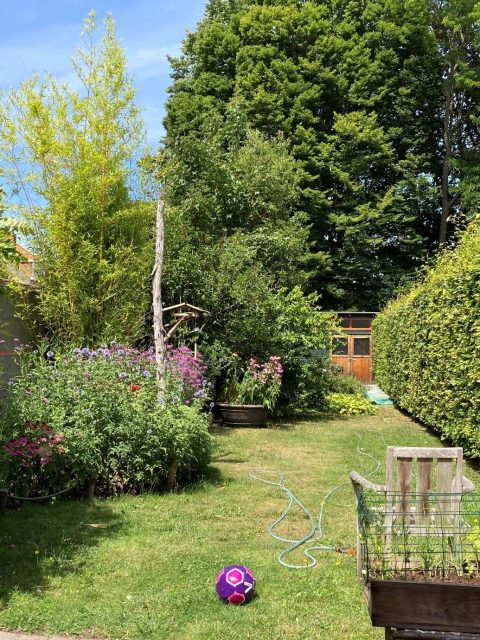
③ Do not be scared of little mice
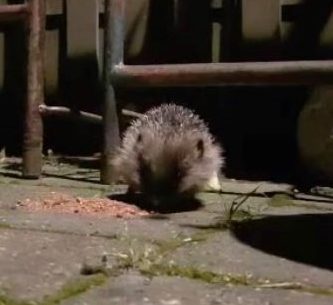
Have you ever jumped to the table when you saw mice in your house? It was me! When I saw the little mice in the garden, I was so scared. But my partner reminded me that gardens are part of their habitat as well. They come to look for food and do me no harm. When there is plenty of food outside, there is no reason for them to get into houses for food. I find what he said super interesting. I assumed that mice like living inside the house and annoying people. Little mice might enjoy being in the garden if they can find insects to eat.
Other than lunch break, we also had two break times. One in the morning, one in the afternoon. It’s about 20 minutes each break and we can play in the playground with our friends.
④ Put out some food for the birds during winter
It is difficult for birds to find food during wintertime. Belgian people buy seed balls to put in the garden for the little birds. The birds cannot talk. But, if they could, they would thank them for these delicious snacks. Small breadcrumbs after breakfast can be helpful. Breadcrumbs are a waste for us, but they are delicious meals for birds.
These are the ways many Belgians do. But they are not only limited to Belgian people. No matter where you live, there are small actions you can do to increase the biodiversity in your surroundings. Without a garden, you can still plant flowers on your balcony. You will be surprised to see little bees come to visit one day.
The place you live in does not only belong to you but also belongs to the creatures around it. We are humans who have more power to make changes in the surroundings we are living in. So, it is crucial to notice and be kind to plants and animals which co-live with you on this beautiful earth.
この記事のまとめ
私は生粋の都会っ子、騒音、高層ビル、大勢の人混みには慣れっこでした。忙しい生活の中、数か月に一度、友達と山へハイキングに行くくらいが自然を意識することでした。以前は『自然は自分の住んでいる場所から遠く離れたところにあるもの、自然は休暇に行く場所』という認識でした。
ベルギーに引っ越してから住んでいる場所には、自然がすぐにそばにあると気づきました。今住んでいる家の裏庭には、たくさんの動植物(ミツバチ、鳥、ハエ、ネズミ、木、花、雑草etc.)がいます。また、ベルギーの人々が庭の手入れをどのようにしているかに気づき、『より環境に優しく、動植物と共生すること』について新たな視点を得ました。ベルギーの人々がどのように庭の手入れをして周囲と調和するためにどんな工夫をしているか?これらのヒントが皆さんにも役立ちますように!
- ① 乾いた葉は地面に放置…冬の間、地面には枯れ葉がたくさん落ちます。カエル、ミミズ、昆虫などの多くは、地上の葉の層を主な生息地とします。ベルギー人は、小動物が寒い冬に生きのびるために、乾いた葉を残しておくのです。春はそれらを掃除するのに良い時期です。多くの蝶が葉の中で越冬していることをご存知ですか? 人間が誤ってこの生息地を奪ってしまうとある日、蝶の姿が見られなくなるのです!
- ② 花を植える…ベルギー人は庭にたくさんの花を植えます。花は美しいだけでなく、ミツバチの主な食料源です。多くの人は野生の花を植え、毎年新しい植物に多額のお金を費やさずに自分たちだけでなくミツバチや蝶が楽しむための美しい庭園を維持しています。
- ③ 小さなネズミを怖がらないで!!…家の中にネズミを見つけたとき、テーブルに飛びついた私!最初、庭にいる小さなネズミを見たときは、とても怖かったです。しかし、庭も彼らの生息地の一部!彼らは食べ物を探しに来ますが、人に害を与えることはありません。外に食べ物がたくさんあるときは、彼らが食べ物を求めて家に入ることもありません。餌となる昆虫を見つけることができれば、小さなネズミも庭にいるのが楽しいかも?今は、小さなハリネズミが毎晩私の家の庭にやって来るのを楽しんでいます。
- ④ 冬の間は鳥に餌を与えましょう… 冬の間、鳥は食べ物を見つけるのが困難。ベルギー人は小鳥のために庭に植えるための種球を購入します。鳥は話すことができないけど、おいしいおやつをくれたことに感謝するでしょう。朝食後に小さなパンくずをやるのも効果的。パン粉はもったいない気もしますが鳥たちにとっては美味しい食事です。
ベルギーの人に限らず、どこに住んでいても、周囲の多様な生物と共生するためにできることはあります。庭がなくても、バルコニーに花を植えるとか…。ある日、小さなミツバチがやって来るかも?私たちが住んでいる場所は人間だけのものではなく、周りの生き物たちのものでもあります。私たち人間は、自分の住む環境を変える力を持っています。この美しい地球上で共に生きる動植物の存在に気づき、優しくすることが大切です。
New words List
environmentally friendly…環境にやさしい
co-living…共生する
unspoken…暗黙の
harmonize…調和する
primary…主要な
habitat…生息地
overwinter…冬を生きのびる
layer…(土の)層
accidentally…偶然に
annoying…いらだたせる
hedgehog…ハリネズミ
biodiversity…生物の多様性
surroundings…周辺
creatures…生き物
この記事の感想を、ぜひ教えてね!
この記事が気に入ったら、ハートのボタンを押してね!
バックナンバー

Wonder the World Vol.1: “Discovering the world beneath our feet” (足元の世界を見てみよう!)
マヒ(インド出身)。環境問題に熱意を持ち、日本で環境サステナビリティの修士号を取得しています。環境、そしてわたしたちができることの大切さを知ってもらうため、を今回は(身近な)「土」をトピッ...

Wonder the World Vol.20: “Reforestation in West Kalimantan”(西カリマンタン州の森林再生)
パティ(インドネシア出身)パティは、立命館アジア太平洋大学で文化、社会、メディアを専攻し、2019 年に学業を終えました。パティは、大学時代にKUMONのイマージョン アクティビティ (K...

Wonder the World Vol.5: “How to help stray animals around the world” (動物愛護について考えてみよう。)
ヤン(マレーシア出身)2008 年から多くの公文英語イマージョン アクティビティ (KEIA) に参加しています。立命館アジア太平洋大学を卒業後、マレーシアに帰国し、夢を叶えるために頑張っ...


